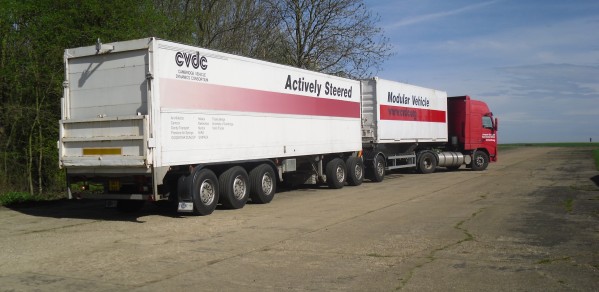Strategic Aim: Creating sustainable integrated solutions for the provision of energy, transport, and infrastructure.
Challenge
Energy, transport and urban infrastructure are vast systems in themselves, but these three systems are becoming increasingly closely coupled. There is a growing need to understand the complete super-system if greater functional, economic and environmental performance is to be achieved.
Ambition
Our ambition is to create a concentration of research and teaching that has:
- pinnacles of outstanding academic excellence in key aspects of energy, transport and urban infrastructure; rather than broad coverage of the domain
- recognition for being able to take a revolutionary look at accepted norms and compromises in the domain founded on strength in fundamental engineering disciplines combined with creativity and unfettered by vested interests
- unique capability to draw together the threads in energy, transport and infrastructure in order to respond to challenges at the highest system level.
Activities
The theme comprises three missions:
These missions are detailed below.
Energy
Facing the world’s energy issues square on and finding creative, affordable leaps that bring true sustainability within sight
Challenge
Energy supply has been critical for economic and social development throughout history. Demand has risen inexorably and now many lines of supply are strained. Resultant price volatility has painful economic and social consequences. In parallel, the effects of energy use on local pollution and global climate change are becoming well understood and need to be curtailed. Engineering is central to the energy debate and must deliver solutions that are efficient, clean and, ultimately, sustainable in the long term. Solutions in the energy sector nearly always involve large teams, as technical solutions need to be married with economic and policy actions with industry in collaboration to carry them through to practice. The challenge is, therefore, not just technical; it is one of gaining critical mass and forming the right partnerships.
Ambition
The University has a strategic initiative and flagship dedicated to energy. Many academics across engineering make strong technical contribution as individuals. A number of groups within engineering have long-standing well-funded energy-related collaborations with industry e.g. Rolls-Royce. With a few exceptions, these collaborations are quite narrowly technical.
The ambition is bring together over 60 engineering academics in our Department who are keenly engaged with energy research to reveal our significant mass in this field, create a higher profile, make their work more accessible to collaborators, and generate the major partnerships needed to achieve impact.
Activities
There is a portfolio of over 100 initiatives and projects under this theme including:
- Bulk Superconductivity Group – developing and applying high-temperature superconductors to practical engineering problems
- Cambridge Nuclear Energy Centre – a multi-department collaboration across Cambridge
- Electronics, Power and Energy Conversion Group – research and application of power electronic devices and integrated circuits, solar cells and their integration in power systems, electrical machines and drives, radio frequency and microwave power systems, and superconductivity
- Energy Efficient Cities initiative - cross-disciplinary research project addressing energy demand reduction and environmental impact in cities, by research in building and transport technologies, district power systems, and urban planning
- Energy Group – focussing on the effective generation and use of energy
- Low Carbon Materials Processing including:
- WellFormed – a novel computer controlled forming processes and seek to understand and exploit their unconventional mechanical behaviour
- WellMet2050 – a major study into the technological, physical and business requirements for meeting global 2050 carbon emission reduction targets for steel and aluminium
- WellMade – radically new sustainable ways to process and manage materials, particularly to meet carbon emissions reduction targets, and develop technologies to allow non-destructive recycling of materials.
- Foreseer – the Foreseer tool examines connected energy, land, and water futures through the use of Sankey diagrams
- The UK Indemand Centre – a national collaboration to understand the performance of the whole material and energy system of UK industry
- Whittle Laboratory - specialising in research into the fluid dynamics and thermodynamics of all types of turbomachinery
Green Transport
Looking at the whole transport system to find the keys to unlock sustainability
Challenge
The transportation system generates about one quarter of Europe’s greenhouse gas (GHG) emissions. While GHG gas emissions in other sectors decreased 15% between 1990 and 2007, emissions from transport in Europe increased 36% during the same period. In China and India, the number of additional private cars on the roads is expected to increase by as much as 2 billion by 2050. Making deep cuts in emissions generated by individual vehicles, in the near term is therefore a high priority because of rapid global warming and climate change. There are three keys to achieving this:
- making fossil-fuel powered transportation much more efficient
- shifting consumer demand, world-wide, towards the most efficient transportation options
- making the necessary changes to infrastructure to accommodate the changes of transportation architectures.
Ambition
Engineering is leading the University’s flagship on green transport and it aims is to maximise its contribution by drawing the existing and emerging research threads together from across the Department.
The ambition is to gain an international reputation for being able to grab hold of transport dilemma at the systems level, develop new insights and carry them through with industrial and government partners to create radical performance improvements.
Activities
The Department in initiatives and projects spanning all modes of transport, which include the following examples:
- Centre For Sustainable Road Freight - multi-disciplinary collaboration across universities and with industry to improve road freight efficiency and reduce its environmental impact
- Cambridge Vehicle Dynamics Consortium - collaboration between a group of companies from the heavy truck industry and engineers from Cambridge to develop better heavy goods vehicles
- Driver-vehicle Dynamics group – research to understand the driver-vehicle dynamic interaction
- Energy Efficient Cities initiative - cross-disciplinary research project addressing energy demand reduction and environmental impact in cities, by research in building and transport technologies, district power systems, and urban planning
- Hybrid aircraft – collaboration with Boeing resulting in the first aircraft to be powered by a parallel hybrid-electric propulsion system, where an electric motor and petrol engine work together to drive the propeller
- Silent Aircraft Initiative – a landmark collaboration with MIT, Boeing and Rolls-Royce to develop a conceptual design for an aircraft whose noise would be almost imperceptible outside the perimeter of a daytime urban airport
- Ultra-low emission buses - designing a modular, common platform for ultra-low-emission electric buses and producing a system able to power a fleet of vehicles
- Whittle Laboratory - specialising in research into the fluid dynamics and thermodynamics of all types of turbomachinery
Future Cities
Developing the best engineering solutions for green, safe, efficient and vibrant places to live and work.
Challenge
The world’s urban population as a percentage of the total passed 50% in 2007, reached 53% in 2014 (http://data.worldbank.org) and continues to rise. Continued rapid growth means expense, disruption and sprawl, as the infrastructure at the core of most cities is outdated and decaying. The stress on city systems is heightened by climate change, security and social issues. How can cities avoid falling into inefficiency, pollution and potential disaster? How can they become the greenest, safest, most efficient and vibrant places to live and work?
Ambition
The Future Cities flagship engages a full spectrum of engineering and social science disciplines across the University with the aim of openly giving technical professionals, investors, politicians, civil servants, and citizens the ability to understand their cities, so that they can make informed decisions about how to employ new technology, policy and governance. Within this flagship agenda, Engineering aims to become the world-leading institution for modelling and monitoring infrastructure and resources, identifying opportunities for dramatic improvements in efficiency, and creating the engineered solutions to meet those opportunities.
Activities
The activities under this mission include:
- Cambridge Centre for Smart Infrastructure – research, development, demonstration and dissemination to transform the infrastructure and construction industries through smarter information
- Energy Efficient Cities initiative - cross-disciplinary research project addressing energy demand reduction and environmental impact in cities, by research in building and transport technologies, district power systems, and urban planning
- Laing O'Rourke Centre for Construction Engineering and Technology – driving innovation and creating a new vision for the construction industry
- Managing Air for Green Inner Cities (MAGIC) – cross-discipline collaboration led by the Department of Mathematics to investigate how to eradicate air pollution and heat island effects in cities by 2050.








